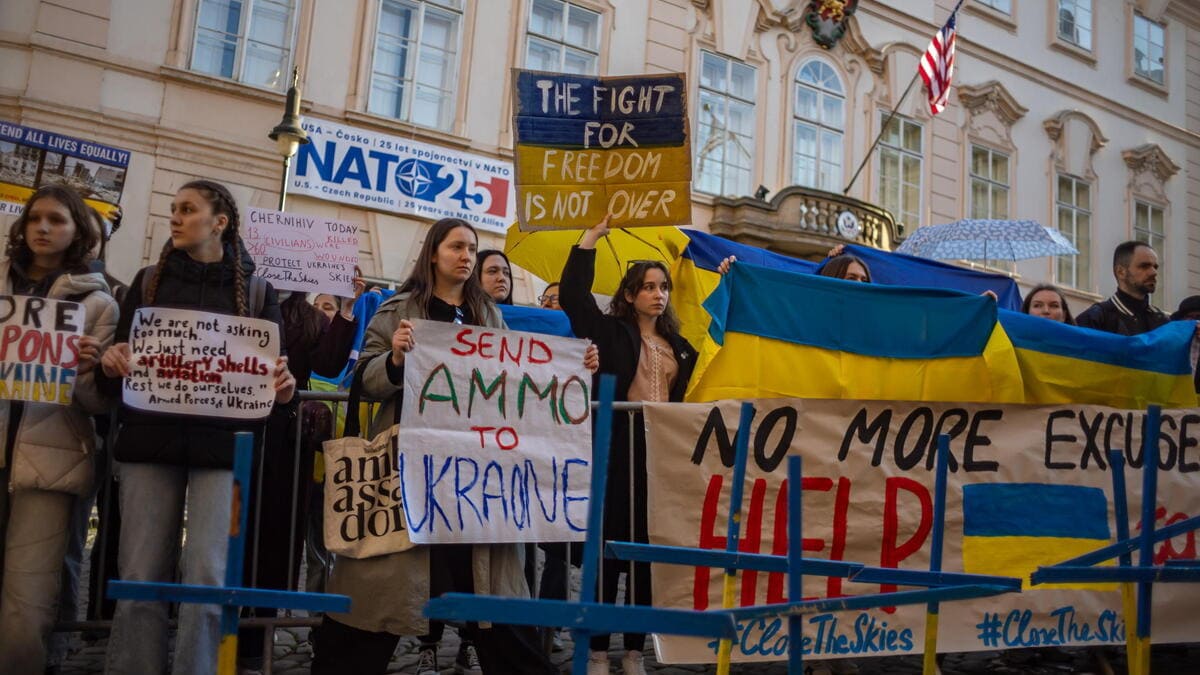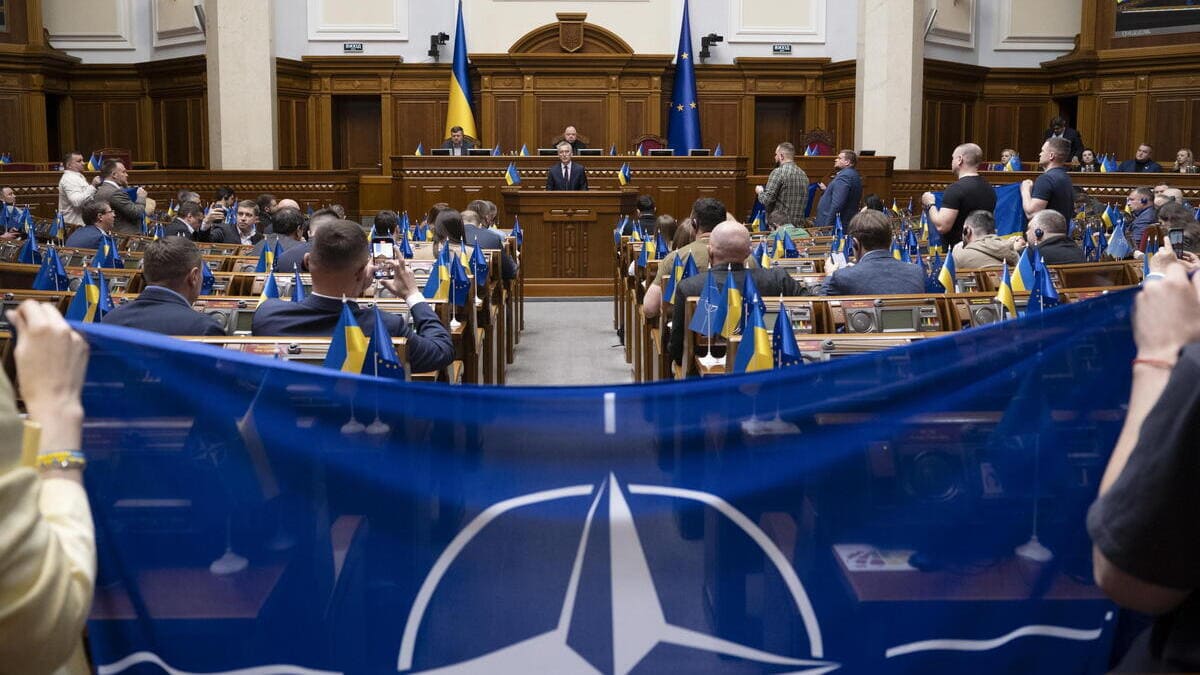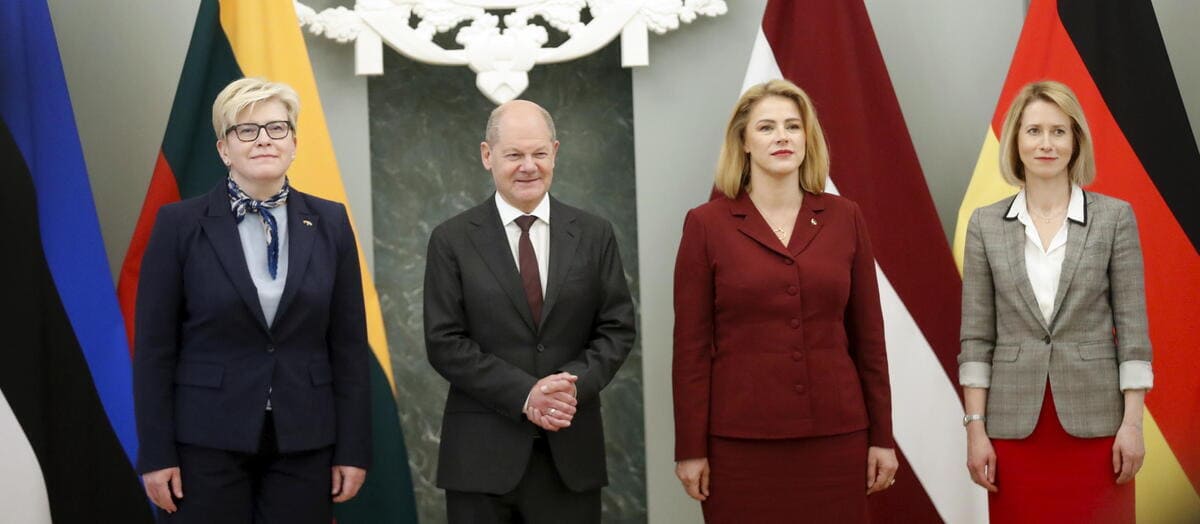
Before the Russian invasion of Ukraine began on February 24, 2022, Joe Biden reassured, “We will not send our soldiers. It would be the Third World War.” As the war approaches two and a half years, this belief is fading. Despite U.S. and NATO leaders continuing to emphasize that the West will only provide weapons, along with economic and humanitarian aid to Kyiv, the possibility of “boots on the ground” is no longer a taboo. Especially if the Russian army were to break through in the Donbass, where Ukrainian defenses are increasingly fragile.
The definitive escalation of the war in Ukraine
Even though at the upcoming NATO summit in Washington from July 9 to 11, the Alliance’s opposition to direct military intervention in Ukraine will be reiterated, this does not mean that individual countries are not actively considering how to send troops to Kyiv, perhaps away from the front line. This is a dangerous first step towards the definitive escalation of the conflict, the most feared since the first day of the war.
The first to seriously consider the deployment of NATO troops in Ukraine was not Emmanuel Macron, but former NATO Secretary-General Anders Rasmussen. A year ago, he said, “If NATO does not provide a clear and certain path for Ukraine’s entry into the Alliance, some countries may act individually. I would not exclude the possibility that Poland, followed by the Baltic countries, may become more involved in the conflict by sending troops on the ground.”
Rasmussen’s words initially fell on deaf ears, but were later picked up and echoed by the French president. For purely electoral reasons with the upcoming European Parliament elections, he has repeatedly reiterated that the sending of soldiers to Ukraine “cannot be ruled out” and that “everything must be done” to prevent Vladimir Putin from winning.
“Kyiv has not asked us yet”
Lithuania, Latvia, Estonia, Poland, and Finland are going beyond mere study hypotheses, for now avoiding taking action with the overused formula “Kyiv has not asked us.” This confirms the statement by Slovak Prime Minister Robert Fico in February when he revealed, “I would just say that a group of NATO countries, EU members, are considering whether to send troops to Ukraine on a bilateral basis.”
Thus, the Alliance would not be directly involved. A move that according to Czech Republic President Petr Pavel would be fully legitimate: “I remember that after the annexation of Crimea and the occupation of part of Donbass, a NATO training mission was operating on Ukrainian territory, involving 15 countries and about a thousand soldiers. From an international law perspective, there is nothing to prevent NATO soldiers from assisting Ukraine.”

Lithuania has already approved the deployment of troops
How to assist? This is the question for which an answer is being sought. Is there a way to send troops to Ukraine without provoking Russia’s anger and without triggering a world (and possibly nuclear) war?
Ingrida Simonyte, the Prime Minister of Lithuania, interrogated by the Financial Times, said that her country is ready to send troops to Ukraine for exercises and to train Kyiv’s soldiers. Many NATO countries are already doing the same, hosting Ukrainians on their own territory. However, Vilnius wants to take it a step further and start deploying its own men to defend the country of Volodymyr Zelensky.
The parliament has already approved the deployment of troops, but, as Simonyte explains, everything is on hold because “Kyiv has not asked us yet.”
Estonia can send soldiers “away from the front line”
Latvian Prime Minister Evika Silina also expressed support for sending troops to Ukraine for training purposes: “If this proposal is developed and expanded, perhaps together with NATO, we will decide to conduct training operations,” she stated, interviewed by Bloomberg.
In Tallinn, similar considerations are being made. According to the army commander, General Martin Herem, Estonia has already discussed the possible deployment of troops to Ukraine. The studied hypothesis is not to engage their own men on the front line, but rather away from the front, perhaps in the capital, to allow Ukrainian troops stationed there to “free themselves” to fight the Russians in the Donbass.
“There are middle ways between doing nothing and fighting,” declared Herem. According to the country’s Foreign Affairs Commission president, Marko Mihkelson, they could go even further: “I hope we can form a coalition of the willing to help Kiev more directly. If other countries agree, perhaps to deploy aviation for air defense, “we will do our part,” he added to Breaking Defense.

Poland and Finland leave the door slightly open
The last two countries considering military intervention in Ukraine are Poland and Finland. Polish Foreign Minister Radosław Sikorski gave a cryptic answer to the BBC while visiting Washington, implying that the deployment of troops cannot be ruled out: “It is a good thing to leave Putin uncertain about what we will do and not always reassure him that we will not do something.”
Similarly, Finnish Foreign Minister Elina Valtonen responded to NatSec Daily’s questions: “We do not want to discuss the deployment of troops at the moment, nor are we considering it. However, it is important not to rule out anything in the long run, because we do not know how serious the situation could become.”
Risk of nuclear war in Ukraine
Everyone knows, if not for Chancellor Olaf Scholz’s embarrassing slip-up, that NATO troops are already present in Ukraine. Certainly, military personnel from the UK, France, the US, Lithuania, and the Netherlands are in Kyiv.
But if some NATO countries were to officially and openly send their soldiers to fight or assist the Ukrainian army, then the Alliance could no longer claim, as it has so far, not to be formally at war with Russia. This could lead to unforeseeable consequences.
The risk of sparking a world conflict exists, acknowledges the Lithuanian prime minister. Yet, “if we were only thinking about the Russian response, then we couldn’t even send a single weapon. Every now and then, there is talk of someone being hit by a nuclear attack.” The possibility is there, although Simonyte dismisses this idea, not very convincingly to be honest: “I don’t think Russia will use nuclear weapons. Most of the time, the wind blows from west to east. They would also be affected by radiation.” Let’s hope I get out of this, in short.



